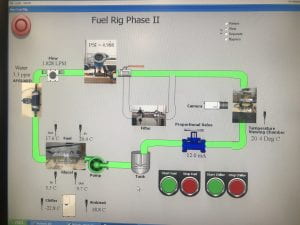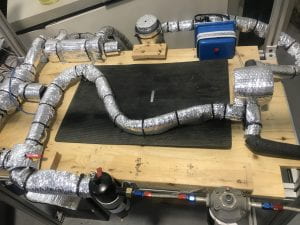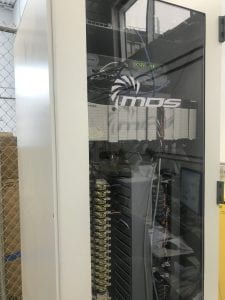Jet Fuel Icing Simulation and Characterization Phase 2
The Opportunity
Ice formation within aircraft fuel systems has been the subject of research studies, especially in the last decade, with a number of industry-academic projects sourced in the USA and Europe. RRC’s TACAM has engaged in various stages of jet fuel icing research under two project agreements with MDS and EnviroTREC (also representing their OEM partners: Pratt & Whitney and Rolls Royce) since 2013. During the course of these two projects many tasks were performed, such as literature survey; lab-scale experimentation of ice formation in fuel; design, set-up and initiation of a sub-scale fuel rig; integration of water sensor with fuel rig and proDAS system to capture new data. Throughout these investigations, limitations of equipment (instrumentation, physical components of the rig, and computer operating systems) have been identified. With the goal of improving accuracy of test conditions and repeatability of data, work scope of Phase 2 was determined.
The Approach
The project team’s primary focus was on increased instrumentation, refinement of systems control and improved data acquisition capability. The fuel rig was entirely redesigned to provide consistent flow and temperature control, including incorporation of heat exchanger and a circulating bath with improved cooling range. Discrete experiments measuring parts per million water content within temperature ranges of -20°C ≤ T ≤ 20°C at a constant flow rate were then conducted to assess performance capability of the new system.
The Outcomes
A controllable recirculating fuel rig capable of achieving repeatable temperature set points, and flow rate of interest. Improved instrumentation capability for conducting experiments to understand temperature-dependent changes in water content in Jet A1 fuel.
The Benefits
- Availability of instrumentation and lab-scale setup for ice crystals characterization in jet fuels.
- Provision of empirical data on the behavior of unadulterated fuel exposed to extreme temperature differential
Testimonial
“The Red River College team has successfully developed a unique capability to study, characterize and control ice formation in aircraft fuel systems. This experimental capability offers us the opportunity to investigate the effects of ice formation in fuels under a variety of concentrations and temperatures thus leading to safer, more efficient fuel systems.”
– David Simpson, Executive Director, EnviroTREC
Collaborators






